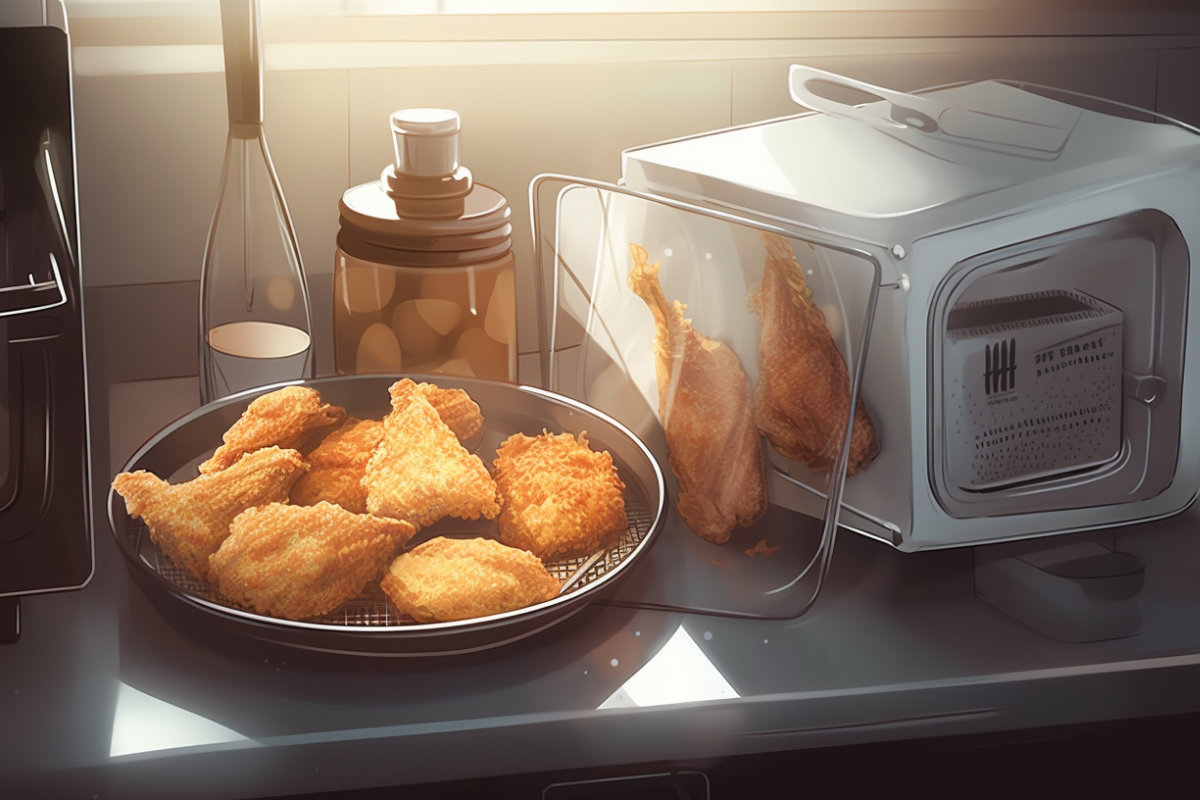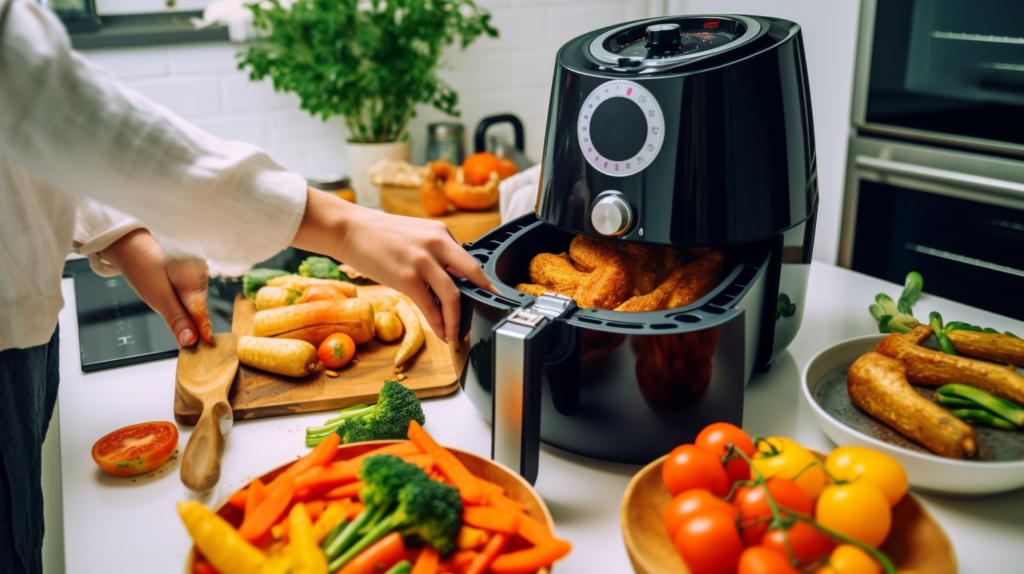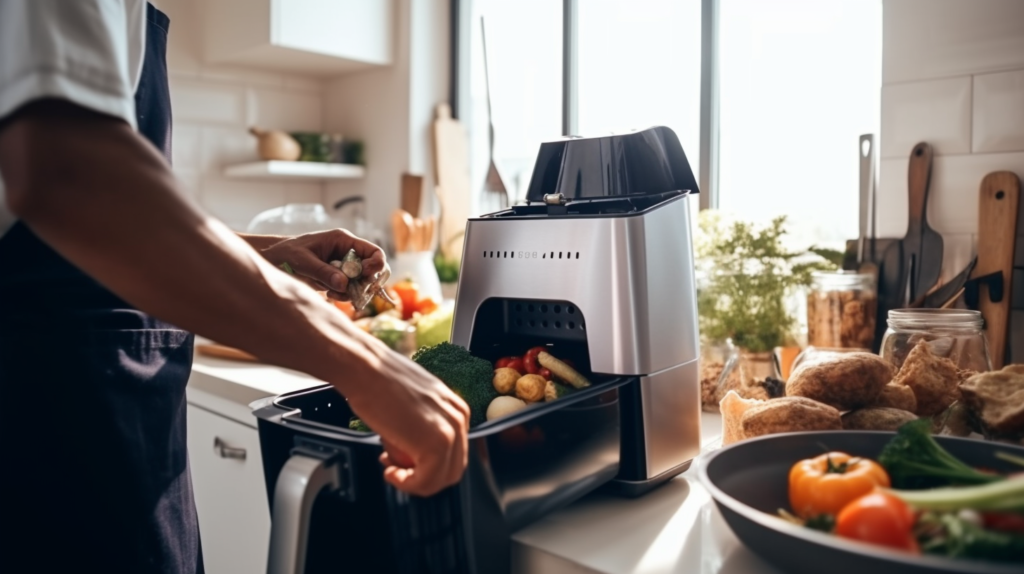Foods to avoid in air fryer Introduction
When it comes to convenient kitchen gadgets, air fryers top the list for their ability to create crispy, delicious meals without the excess oil of traditional frying. However, not all foods are suited for this method of cooking. Understanding which foods to avoid can enhance your air frying experience, ensuring that each meal is not only tasty but also safe and suitable for this type of appliance. In this guide, we’ll explore the top foods that you should steer clear of when using an air fryer, helping you to avoid common cooking mistakes and maintain the integrity of your device.
Understanding the Limitations
While air fryers excel at producing crispy and delicious results, certain foods may not fare well in this appliance. It’s essential to recognize these limitations to avoid disappointment and ensure optimal cooking outcomes.
The Importance of Proper Preparation
Preparation plays a vital role in air frying success. From coating foods with a light layer of oil to ensuring even spacing in the fryer basket, proper preparation can make a significant difference in the final texture and flavor of your dishes.
The Rise of Air Fryers
Air fryers have become a fixture in modern kitchens, celebrated for their ability to deliver the crispy texture of fried foods without the associated drawbacks of traditional frying. Here’s why they’ve become so popular:
Health Benefits:
One of the most compelling reasons for the rise of air fryers is the health advantage they offer. These devices use significantly less oil than traditional deep fryers, resulting in food that contains fewer calories and less harmful fats. This feature appeals particularly to health-conscious consumers looking to reduce their fat intake while still enjoying their favorite fried foods.
Convenience and Efficiency:
Air fryers heat up quickly and cook food faster than conventional ovens. They are small and compact, making them ideal for smaller kitchens, dorm rooms, or for quick cooking. Their ease of use and fast cooking times mean that meals can be prepared in a fraction of the time it would take using other methods.
Versatility:
Beyond just frying, air fryers are versatile enough to bake, roast, and grill. From crispy chicken wings to roasted vegetables, and even baked goods like muffins and cakes, the range of dishes that can be prepared in an air fryer is vast and varied.
Energy Efficiency:
Compared to using an oven, air fryers are generally more energy-efficient. They reach the desired temperature faster and cook food more quickly, which can lead to energy savings over time. This efficiency is particularly appealing in times of rising energy costs.
Safety and Cleanliness:
Air fryers are enclosed and offer a safer cooking environment by minimizing the splatter of hot oil, a common issue with traditional frying. They are also easier to clean, with many models featuring dishwasher-safe parts to streamline the cleanup process.
The growing awareness of the benefits of air frying, coupled with an increasing focus on healthier lifestyles, has propelled the popularity of air fryers. As manufacturers continue to innovate and improve the capabilities of these appliances, their place in the kitchen seems set to remain secure. For those considering an air fryer, choosing the right model to fit cooking needs and space can enhance your culinary experience significantly.
Foods to avoid in air fryer: Health Benefits and Convenience
Reduced Fat Intake:
The standout health benefit of using an air fryer is the dramatic reduction in oil needed for cooking. Traditional frying methods often involve submerging food in large quantities of oil, which is absorbed into the food, increasing the caloric and fat content. Air fryers, however, require little to no oil to achieve a similar texture and taste. This can significantly lower overall fat intake and help in managing cholesterol levels.
Lower Calorie Consumption:
With less oil, the food cooked in air fryers naturally contains fewer calories. This makes it easier for individuals trying to lose weight or maintain a healthy lifestyle without giving up their favorite fried foods.
Promotion of Healthy Eating Habits:
By making “fried” foods healthier, air fryers encourage people to consume more home-cooked meals. They provide a convenient way to prepare vegetables and proteins in a more appealing, crispy form, which can help increase the intake of these nutritious food groups.
Time-Saving:
Air fryers heat up and cook food faster than traditional ovens. This quick turnaround is perfect for busy lifestyles, enabling families and individuals to prepare healthy meals without spending too much time in the kitchen.
Versatility:
Beyond frying, air fryers can bake, grill, and roast. This versatility allows for a wide array of healthy cooking methods within one appliance, from crispy Brussels sprouts to tender chicken breasts, reducing the need for multiple pots and pans and making the cooking process simpler and less daunting.
Easy Clean-Up:
The design of air fryers generally makes them easy to clean, which is a significant convenience factor. Many models come with dishwasher-safe parts, and their enclosed cooking chamber means less mess from oil splatter compared to traditional frying.
Diet-friendly:
Air fryers are a boon for those following specific diet plans. They make it easy to prepare meals that are low-fat, low-carb, or require specific cooking methods, all while keeping flavors intact and food appealing.
However, not every dish benefits from air frying. To learn more about healthy cooking techniques that may better suit certain recipes.
Foods to Avoid in an Air Fryer
Certain foods don’t fare well in an air fryer due to how they react to high-speed hot air circulation. Here’s a list of what you should generally avoid:
Battered Foods
Battered foods, such as tempura or heavily breaded items, are best avoided in an air fryer. The batter tends to become soggy during the cooking process, resulting in a less-than-desirable texture.
Wet Batters
Avoid using wet batters in your air fryer, as they can create excess steam and lead to uneven cooking. Opt for dry coatings or lightly seasoned options for better results.
Cheese
While cheese can add delicious flavor to many dishes, it tends to melt and create a mess in the air fryer. Avoid using large quantities of cheese or placing cheese directly onto the air fryer basket.
Whole Grains
Whole grains, such as rice or quinoa, are not suitable for air frying due to their high moisture content. Attempting to air fry these grains may result in a gummy or unevenly cooked texture.
Leafy Greens
Delicate leafy greens, such as spinach or kale, are prone to burning in the intense heat of an air fryer. It’s best to sauté or roast these greens using alternative methods.
Raw Vegetables
While air fryers excel at cooking vegetables, certain raw vegetables, such as broccoli or cauliflower, may not cook evenly in the appliance. Consider steaming or blanching these vegetables before air frying for better results.
Thin Cuts of Meat
Thin cuts of meat, such as bacon or thinly sliced chicken breasts, may cook too quickly in an air fryer, resulting in a dry and overcooked texture. Opt for thicker cuts of meat or adjust cooking times accordingly.
Foods Wrapped in Parchment Paper
Avoid wrapping foods in parchment paper when air frying, as it can inhibit airflow and prevent proper crisping. Instead, use aluminum foil or cook foods directly in the air fryer basket.
FAQs About Foods to avoid in air fryer
Q: Can I cook frozen foods in an air fryer?
A: Yes, you can cook frozen foods in an air fryer, but be sure to follow the manufacturer’s instructions for best results.
Q: Are there any health concerns associated with air frying?
A: Air frying is generally considered a healthier cooking method compared to traditional frying, as it requires minimal oil. However, moderation is key, and it’s essential to maintain a balanced diet.
Q: Can I use aerosol cooking sprays in my air fryer?
A: While aerosol cooking sprays may be convenient, they can damage the non-stick coating of your air fryer basket over time. Opt for oil mister bottles or brushes for safer application.
Q: How do I clean my air fryer?
A: To clean your air fryer, start by unplugging the appliance and allowing it to cool completely. Remove the basket and tray, then wash them with warm, soapy water. Use a soft brush or sponge to remove any food residue, and be sure to dry the components thoroughly before reassembling.
Q: Can I use aluminum foil or parchment paper in my air fryer?
A: While aluminum foil can be used in moderation, avoid using parchment paper in your air fryer, as it can obstruct airflow and affect cooking results.
Q: How do I prevent food from sticking to the air fryer basket?
A: To prevent food from sticking, lightly coat the air fryer basket with oil or cooking spray before adding ingredients. Additionally, avoid overcrowding the basket to ensure proper airflow.
Conclusion from Foods to avoid in air fryer
Navigating the do’s and don’ts of air frying can significantly enhance your cooking experience and ensure the longevity of your appliance. While air fryers offer a healthier alternative for cooking a wide array of dishes, they are not suitable for every type of food. Avoiding wet battered foods, creamy or sauce-based dishes, popcorn, broccoli, large cuts of meat, cheese, and leafy greens will prevent cooking mishaps and help you achieve the best results. Embracing the right practices not only optimizes the functionality of your air fryer but also opens up a world of culinary possibilities that align with a healthier lifestyle. So, next time you’re ready to cook, remember these tips to make the most out of your air frying experience.
For those interested in exploring vegan options with air fryers, you might find value in Vegan Air Fryer Recipes: A Guide to Crispy, Healthy Cooking, which provides excellent tips and recipes.
Furthermore, to understand more about air fryers’ suitability for vegan diets, check out Is an Air Fryer Good for Vegans?, offering insights into how these devices can align with a vegan lifestyle.



